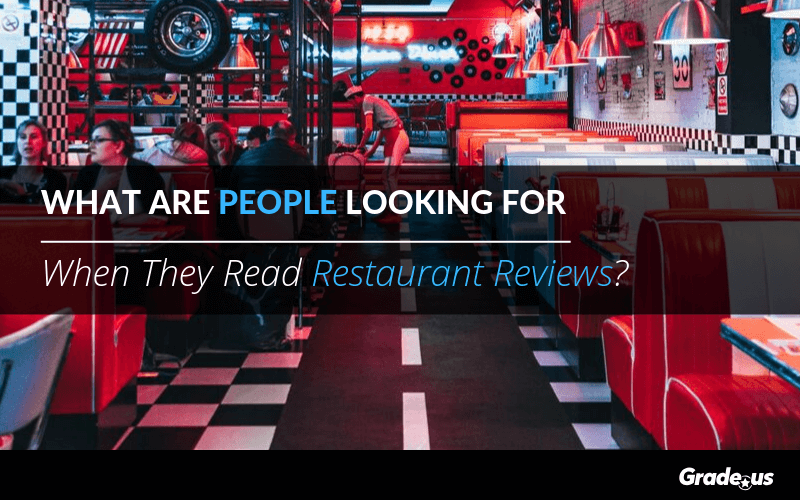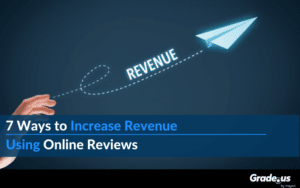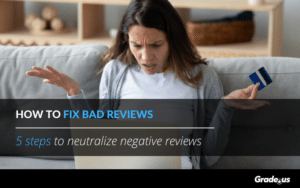It's pretty safe to say that online reviews have had a more profound impact on the restaurant industry than almost any other. People read restaurant reviews as much as any other industry.
It makes sense. We all have to eat. Nobody wants to spend hard-earned money on cruddy food, especially not when you're on vacation. Or are trying to recover from a long day at work.
Even though we all know that your reviews and online presence play a big role in whether people choose to dine with you, there's been a lot less investigation into how people are using this information.
Until now. You're about to hear from travel bloggers, business travelers, and regular folks who know exactly what they want to see when they go looking for a restaurant. We'll also get a helpful and sometimes obvious look into what they don't want. You can use this information to make your restaurant more competitive than ever.
You may be surprised to learn that people are looking for a lot more than confirmation that your food tastes good when they read restaurant reviews.
Does your restaurant have enough photos?
People use photos to get a variety of information. Sure, they want to know whether your food is going to make their mouth water.
But they might be looking for other details as well.
Author Nancy Grant took a 4,000 mile trip through six states. What does she look for?
"Ambiance. Do the locals eat at this restaurant regularly? Why do they like it? Are they having fun?"
She also views photos to get a sense of the portion size. As a traveler, she knows she can't really handle leftovers, so proper portions are important to her.
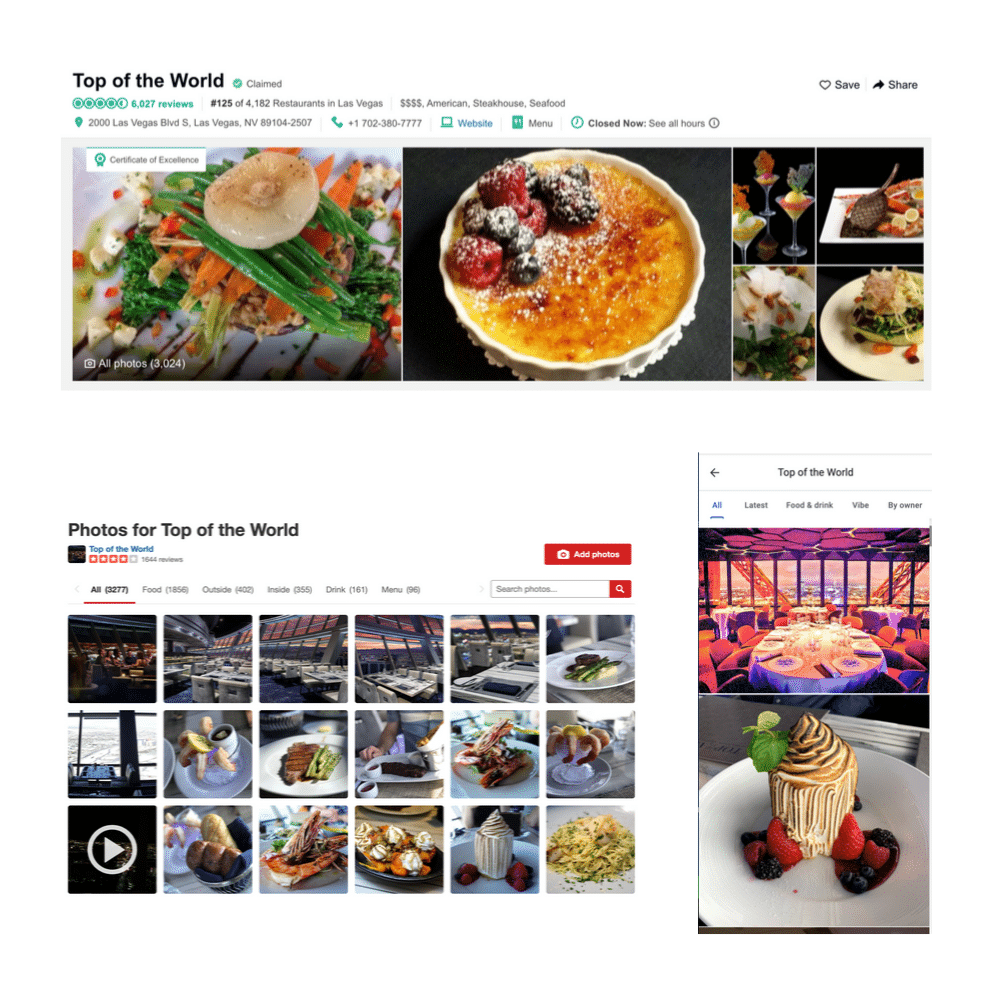
Obviously there are hundreds of things the average person could be looking for when they scan your photo presence on Google My Business, Facebook, Trip Advisor, and other platforms. You can't control that.
What you can control is making sure there are lots of photos to look at. You can make sure they're attractive and that they focus more on the food. By presenting your customers with a vast library of visual content you increase the chances they'll find your establishment appealing.
Has your establishment produced enough restaurant reviews?
"I need a good number of reviews from a restaurant in order to fairly assess whether or not to eat there. The fewer there are, the more unbalanced the opinion," says Katie Derrick, writer for Africa Travel.
She's not alone. It can take 40 or 50 reviews before you build up enough of a profile to earn trust.
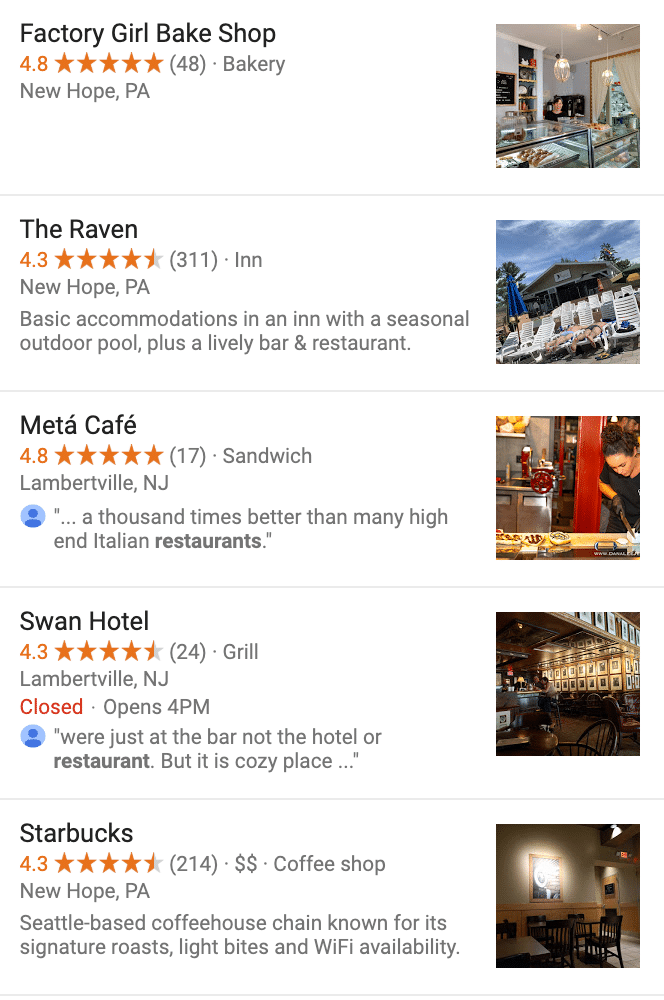
If you're starting from scratch, you can't do much more than continuing to gather reviews on a consistent basis. Just don't stop once you've built up a fair number. Reviews age quickly. If your latest review is six months old it won't matter if you have 800 of them.
Do you have a presence on multiple platforms?
"Cross-reference. I can't stress this enough, especially when traveling abroad," says writer and foodie Kalev Rudolph. "You'll get a full picture of whether a restaurant really deserves those 4-5 stars. Also, often one platform will have more up-to-date responses that can clue you into whether the quality of the food and service at that restaurant is rising or falling.
Your presence on multiple review sites is a huge trust signal. It's a lot harder to fake your way to 5 stars on multiple platforms.
You also get the benefit of all the customers who will only use the one platform.
Your review strategy should send people to multiple sites, not just one. If you're emailing or texting, rotate links to different sites so you get a more robust review platform.
Do you have menu options that matter?
"I look specifically for the words 'vegetarian' or 'vegan.' I do not book meals in restaurants without these magic words, regardless of the number of stars," says Dr. Ceppie Merry of Healthy But Smart.
"The restaurant does not have to be vegetarian, as my kids won't eat vegetarian foods. But I find the restaurants that specifically state they cater to vegetarians have a better range and quality of foods than the mainstream restaurant with the 'token' vegetarian meal."
Some people have dietary restrictions. The culinary world is not always kind to these people.
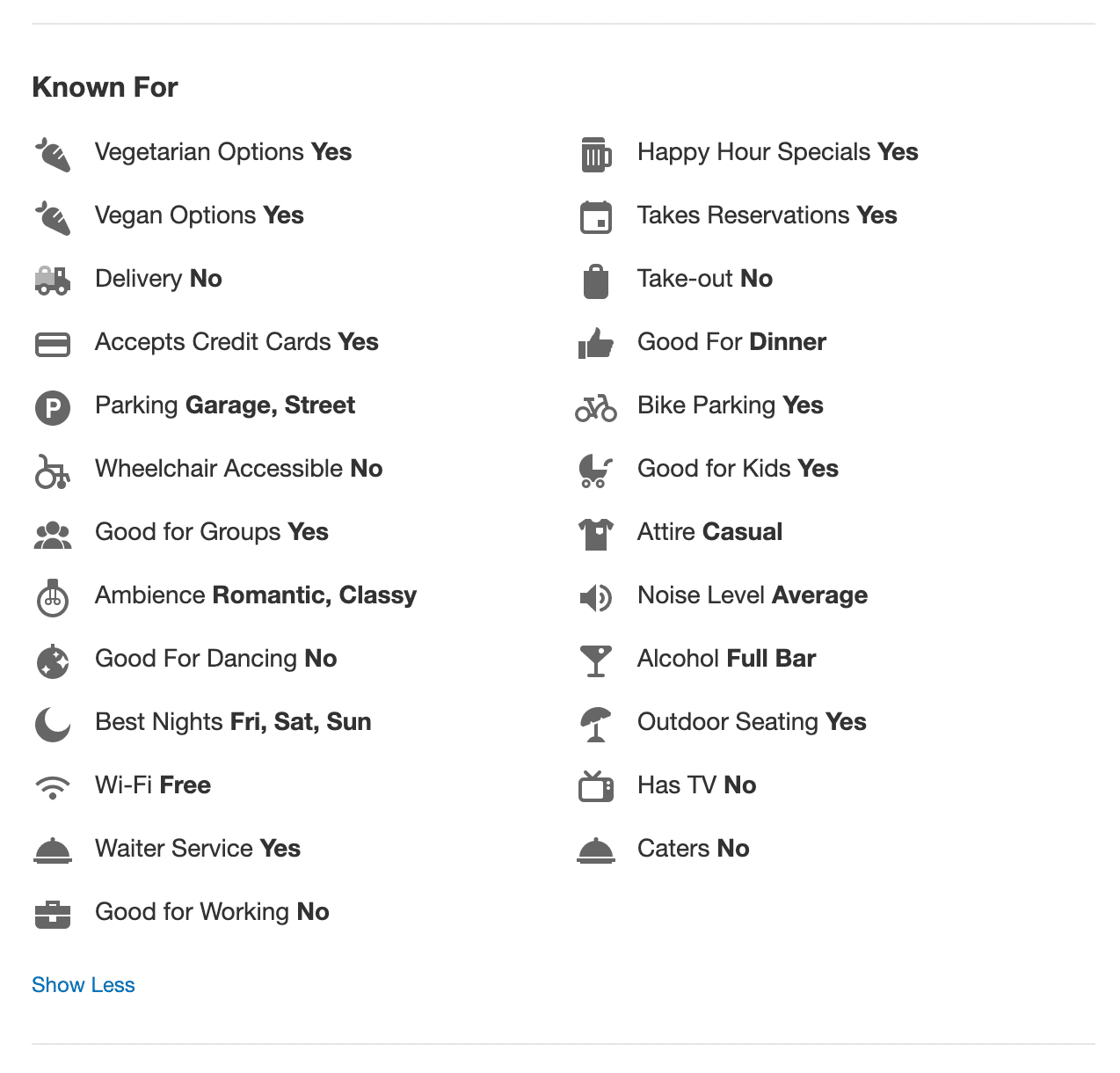
Sometimes they have restrictions by choice. They're vegetarian or vegan. Other times, they're grappling with severe food allergies. If those food allergies revolve around things that are practically everywhere, like dairy or soy, going out to eat produces a lot of anxiety.
Yes, you might be running a fancy steakhouse. But making sure you have a few vegetarian and vegan options is a big deal. So is clearly labeling all your allergens so people don't have to worry they'll be scrambling for their Epi pens because they didn't guess correctly.
Develop a few of these dishes, and mention them. Pair this with a restaurant review strategy to help convey that your restaurant is a place where everyone feels welcome.
Who is leaving the restaurant reviews?
"I look specifically for reviews left by locals," says Brandon Ackroyd of Tiger Mobiles. He's talking primarily about international travel; he uses the language filtering feature to set the reviews to the native language from that country.
"If there are only reviews from English-speaking customers and very few natives, then it's a place to avoid for me."
But really, anyone can use this method, anywhere. Go to Google My Business and you can click on any reviewer's profile. You'll see where else they've left reviews.
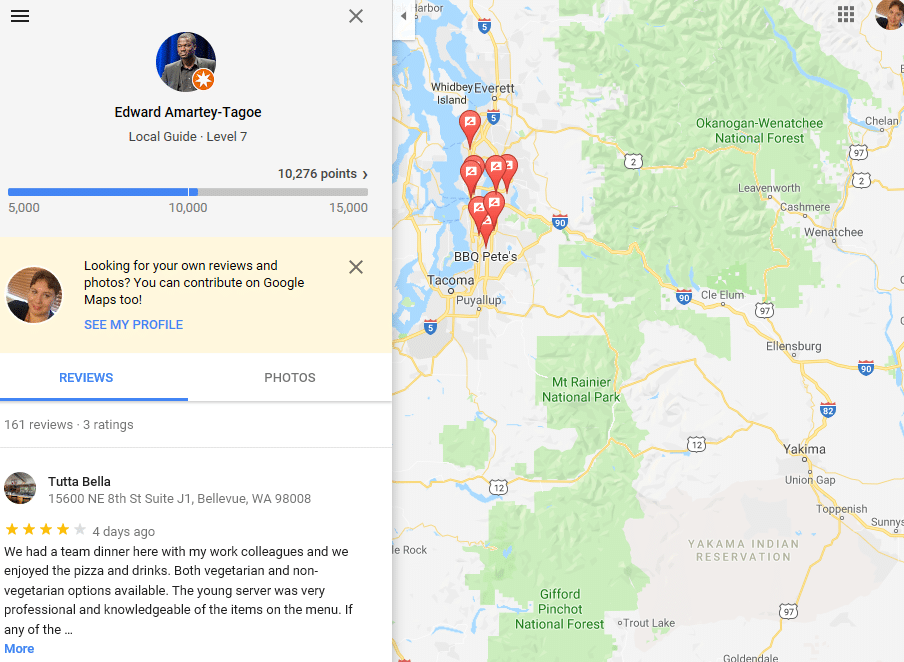
If you're visiting Seattle and looking for reviews by Seattle natives, then this guy's picks are a great bet. Most of his reviews are all clustered around the Seattle area. If he's moved recently, he was at least a local at some point.
It's a lot of effort to go through just to see where the locals eat, but in some situations it would be worth the effort. I'd do it, if I were going to any big destination city. Who wants to be caught in a tourist trap when they could find the charming hole-in-the wall where the food is ten times better?
Are any restaurant reviews fake?
Fake reviews are pervasive in every industry, but the restaurant industry has an even bigger problem than most. Witness The Shed, London's #1 Restaurant, which became Trip Advisor's #1 Restaurant before any restaurant existed.
There are folks who aren't aware of it, of course, but there are plenty of people who are. Sure, some of them are marketers, but there are lots of marketers and we all have to eat too.
"Look out for reviews that mention the names of employees," warns Brett Downes of Ghost Marketing. "Especially the manager or the owner more regularly. This is a classic case of them getting friends or family members to write the reviews and, for their ego, mentioning them."
Downes also looks for places that have a full 5-star rating but less than 20 reviews. "Nothing is ever always perfect, and even if it was, there would be somebody who would have a gripe about something. If it looks too good to be true, it is."
What can you do if you've indulged in fake reviews in the past, but have now seen the light and are ready to play fair?
Know that reviews have a shelf-life anyway. Focus on building a review strategy that gets you real reviews, and avoid writing any more fake ones.
When you get negative feedback, do you use it?
Gloria Foods produces software solutions that help restaurants take orders online. Andrea Dobrila works there by handling their online marketing. Small wonder that she knows all about review best practices like using negative feedback to make your business better.
"That's what I'm most interested in," she says. "If they used the negative feedback they received it tells me they truly care about creating a great customer experience."
You hardly have to be in the restaurant industry to think this way. Sometimes, people just want to know you give a care. Your strategy here is to make sure you're monitoring reviews. You've got to know what people are saying before you can respond to what people are saying.
Then, respond with more than words (but do respond with words). If you're seeing that your service is slow, hire more people. If the food is too salty, cut back.
Restaurants don't always start out amazing. Some get there, though, through constant improvement. Listening to your customers is always a fine place to start.
About the Author
Raney C. Hudson
Raney C. Hudson is an independent content consultant with a 10+ year track record in the digital marketing industry.

